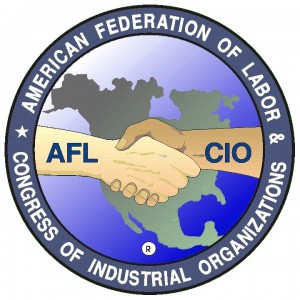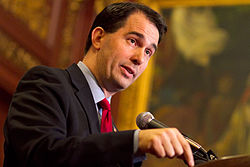WHAT IS THE PURPOSE OF A UNION? How should unions respond to the oppression of Blacks, women, immigrants and gays? How should unions relate to the rest of the working class, the employer, and the State? Should existing unions be reformed, or is more fundamental change required?
In Solidarity Divided: The Crisis in Organized Labor and a New Path Toward Social Justice ¹ Bill Fletcher, Jr. and Fernando Gapasin insist that we need new answers to these questions if we hope to reverse “the crisis facing organized labor – indeed the crisis facing the entire US working class.” This crisis is marked by declining unionization, inter-union conflict, falling living standards, rising unemployment, growing poverty and deepening oppression.
Solidarity Divided is essential reading. For a summary of the contents, I recommend Immanuel Ness’s thoughtful review.² I will address the strategic questions that Fletcher and Gapasin raise because they are so important to our organizing efforts.
What is the purpose of a union?
Since Samuel Gompers took the Presidency of the American Federation of Labor (AFL) in 1886, the official answer to the question of what is the purpose of a union has been – to promote the economic interests of those fortunate enough to be union members.(15) Fletcher and Gapasin argue that this narrow focus on economic self-interest (economic unionism) has been a colossal failure for unions and for the working class as a whole.
 Unions are the most organized section of the working class. They could win mass support if they championed the unity, rights and standard-of-living of the entire class, that is, if they addressed social and political issues.
Unions are the most organized section of the working class. They could win mass support if they championed the unity, rights and standard-of-living of the entire class, that is, if they addressed social and political issues.
When unions don’t support the class, they cannot count on the class to support them. And without mass support, unions cannot prevail against an employers’ offensive that pits groups of workers against one another. Here’s a good example.
I recently heard a public radio report on a months’ long civic workers’ strike. The head of the union was interviewed first, followed by the city’s mayor (the employer).
The union leader focused on the fairness of the union’s economic demands compared with what other unionized workers in the city have won. The mayor talked about how the strike was an attack against seniors and children. He said that everyone was suffering from the recession, and city workers had no right to put their own welfare above that of others. He added that he could not meet the union’s demands without cutting public services.
The mayor presented himself as the guardian of the greater good, when the reverse is true.
The union had rejected a concession contract. It was fighting to maintain a standard of living that serves as a benchmark for other workers in the area – defending senior’s pensions and good jobs for tomorrow’s workers. However, the union did not say that it was fighting for the rights of all workers. The union did not say that it was fighting against the unreasonable demand that workers should pay for economic problems they did not create. The union did not call on everyone who is suffering from the recession to join its fight and demand that business profits be taxed to provide more good jobs through expanded public services. It said none of these things. Unlike the mayor, it steered clear of “politics.”
So, after hearing both sides, the average person would be inclined to support the mayor against the “greedy unions” who either caused the recession or are demanding more than their share.
How can union supporters convince others that unions fight for everyone, when unions themselves refuse to make this argument?
Polls show that most workers want union jobs, so there is potential for majority support for unions. However, a narrow union focus on economic self-interest does not invite mass support. On the contrary, it can generate resentment among non-union workers. By refusing to fight the political class war, unions are losing the economic battle.
To reverse this situation, Fletcher and Gapasin argue that the union movement must undergo a political transformation to become a labor movement that champions the economic and social interests of the entire working class: union and non-union, employed and unemployed, all races, genders, sexual orientations, native-born and immigrant.
How should unions respond to oppression?
Employers use racism, nationalism, sexism and homophobia to divide workers and weaken their collective power, so unions would benefit from fighting these oppressions. However, most unions go along with workplace and social divisions, and their structure reflects this – most union officials are straight White males.
When unions do address matters of oppression, these are not considered central to the union’s function. Instead, they are usually delegated to separate union departments or caucuses, so that Black members are left to fight racism, women to fight sexism, gays to fight homophobia, etc. The implication is that straight White male workers have nothing to gain from fighting oppression. The question of whether they do or not divides society, the workplace, the unions and the left.
Employers accumulate capital by paying workers less than the value of what they produce. As a result, the gap in wealth between the capitalist class and the working class keeps widening. Capitalism denies that employers exploit workers. Instead, it promotes the view that employers and workers are economic “partners.”
On the other hand, capitalism encourages the belief that sections of the population who are better off have achieved this position at the expense of those who are worse off, i.e., that men benefit from the oppression of women, Whites benefit from the oppression of Blacks, straights benefit from the oppression of gays, workers in richer nations benefit from the exploitation of workers in poorer nations, etc. This idea is widespread, but untrue.³
The belief that some workers benefit from the oppression of others causes the presumed beneficiaries of oppression to feel guilty around their oppressed co-workers who, in turn, feel resentful toward their more “privileged” brothers and sisters. This is divide-and-rule at its finest, and it benefits only the employers.4
I could find no reviews of this book that questioned its assertion that some workers benefit from the oppression of others. This issue must be resolved if we hope to build an effective fight against oppression. As the authors state,
[Either] oppressions such as racism and sexism become battlegrounds to unite workers in the larger challenge for power, or they become battlegrounds in the intra-class struggle over resources. (181)
Building beyond the workplace
Solidarity Divided argues that the struggle against oppression must transcend the boundaries of workplace, union and nation.
Katrina provided an opportunity to challenge racism, poverty and neoliberal government policies and to help Gulf Coast residents organize themselves so they could have a say in the future of the area. But instead of providing political support, the unions offered only charity.
Similarly, unions have not fought against unemployment, for women’s reproductive rights, for affirmative action, for immigrant rights, for gay marriage, etc. At best, resolutions are passed, and money is donated.
Instead of paying lip service to social issues, the authors argue that unions should promote internal political discussion with the aim of mobilizing members to fight for the rights of the oppressed of all classes and for the working class as a whole. (168-9) This will be not be possible without challenging the widespread conviction that straight White male workers actually benefit from racism, sexism and homophobia.
How should unions relate to employers?
Fletcher and Gapasin describe how American unions embraced a social contract with employers after World War II.
The postwar social accord with capital was symbolized by the so-called Treaty of Detroit in 1950, in which Corporate America bought back managerial initiative and control of the shop floor in exchange for cost-of-living raises, employer-sponsored health care, and pension plans. The price was abandonment of class struggle against Corporate America and further bureaucratization of the union movement. Grievance and arbitration procedures replaced the right to strike. “Professional” labor-relations representatives replaced rank-and-file shop stewards as the primary representatives of the unions. (28-9)
In the early 1970s, the economy sank into recession, and Corporate America tore up its half of the social contract. By the late 1970’s, employers were on the offensive, demanding concession contracts to roll back wages and benefits. Both Republican and Democratic administrations backed the capitalist class.
In the wake of President Carter’s firing of postal workers after the 1978 wildcat strike and then the dramatic firing of the PATCO workers by President Reagan, organized labor had no sense of how to build a massive social movement that was anything more than a lobbying effort. Organized labor made excuses for its inaction rather than reflectively and self-critically acknowledging that labor’s “Pearl Harbor” had taken place and that a new form of class warfare was unfolding on the national level. (46-7)
Unions refused to accept the new reality. They continued to operate in a kind of time warp, insisting on upholding their end of a social contract that no longer existed. They accepted employers’ demands for concessions, no matter how deep, in the hope that once profitability was restored, they could regain lost ground. However, even as the economy boomed during the 1980s and 1990s, employers continued to demand concessions.
The unions cannot acknowledge this one-sided class war, because years of compromise and bureaucratization have left them totally unequipped to fight on a class basis. The authors warn,
As long as unions operate solidly within capitalism, accepting its basic rules and premises as permanent, they may be marching to their doom. (214)
Fletcher and Gapasin disagree with the prevailing wisdom that all union problems can be solved by acquiring more members and building bigger unions. They argue that this strategy cannot succeed unless the push for growth is matched with a political strategy that acknowledges the fundamental conflict between labor and capital, challenges the supremacy of capital, and fights for working-class power.
How should unions relate to the State?
Samuel Gompers believed that the interests of American workers were linked with the interests of American corporations and the American Empire. So the AFL allied itself with US capital and the US State in their program of world domination, even though this partnership put the AFL in direct conflict with the interests of workers in America and around the world.
With the notable exception of US Labor Against the War (USLAW), most US unions continue to back US foreign policy, supporting imperial wars and military aid to foreign governments that attack workers’ rights (ie. Columbia, Indonesia, Israel). As the authors state,
The AFL-CIO and CTW leaderships appear to equate patriotism with support for US foreign policy and are clearly reluctant to entertain broad-based discussion of US foreign policy within the ranks of the union movement. (120)
Fletcher and Gapasin believe that unions must take a stand against US imperialism, because class solidarity means nothing if American workers back their State to dominate and destroy the lives of workers in other lands.
Similarly, unions must oppose domestic anti-worker policies, including racist immigration measures, a privatized medical system and neoliberal economics that force workers to pay the cost of bailing out failing corporations.
Solidarity Divided challenges the myth that government represents “we the people” (as in, we the people now own shares of GM and Chrysler), when it actually represents the collective interests of the capitalist class (as in, we the capitalist class are using public money to float GM and Chrysler until it can be returned to profitability). As they point out, the State serves the employers by consistently suppressing independent working-class activity.

Strikers, 1920s
What’s the solution?
Solidarity Divided advocates building geographically-based unions and workers’ councils that include union and non-union members. Such formations have traditionally provided a base for working-class power. However, the authors do not advocate building an independent political party of the working class.
The authors support independent political action, but not political independence from the Democratic and Republican parties. Instead, they call for a neo-Rainbow approach – building an organization that can work both inside and outside of the Democratic Party.5
Unfortunately, the American electoral system is designed to prevent independent mass organizations from developing. Bi-yearly electoral races exert an irresistible pull on all social movements to back particular candidates and to tone down their demands in order to get those candidates elected.
The Democratic Party has been phenomenally successful in absorbing and derailing social movements, the campaign to elect President Obama being the most recent example. Fletcher signed the founding statement of “Progressives for Obama” which states,
We intend to join and engage with our brothers and sisters in the vast rainbow of social movements to come together in support of Obama’s unprecedented campaign and candidacy. Even though it is candidate-centered, there is no doubt that the campaign is a social movement, one greater than the candidate himself ever imagined.6
This is how social movements are seduced into supporting a capitalist party that serves the capitalist class. Only a political organization that is dedicated to working-class rule could resist this pull and avoid the demobilization that follows inevitable betrayal.7
Despite warning us that the State is not a class-neutral machine, it appears that Fletcher and Gapasin fall into Gompers’ trap of viewing the State as “an empty vessel that could be filled by any sort of politics or political or economic influence… [so that] the working class need not challenge the capitalists for state power.” (15)
This may be the greatest weakness of the book – it calls for building a movement to challenge capitalist oppression, not to end that oppression by bringing the working class to power.
The problem may be the mistaken belief that some workers benefit from the oppression of others. If this were true, then a society run by workers would not end oppression, so that it would be necessary to seek cross-class alliances. However, this is a dangerous road because cross-class alliances typically subordinate working-class demands.
Can unions be reformed?
Fletcher and Gapasin argue that the existing unions cannot be reformed, because they are structured to prevent democratic control from the base. (165-6)
The authors provide numerous examples of how conservative and even right-wing union leaders have used socialists to build the unions while denying them any power unless they agree to be co-opted into the bureaucratic structure.
Solidarity Divided describes how the union machine has applied anti-democratic methods to prevent the class-based expansion of union struggles (Decatur, Illinois) and to crush internal rank-and-file rebellions (Ron Carey and Teamsters for a Democratic Union). A more recent example is the SEIU takeover of United Healthcare Workers -West, when it insisted that front-line health care workers had the right to vote on who should represent them and to participate in bargaining contracts with their employers.

For those attempting to build independent unions, Fletcher and Gapasin warn that capitalism creates the conditions under which undemocratic business unions are reproduced and by which even the most well-intentioned leaders are co-opted. Preventing such corruption requires stringent counter-measures that make sure members keep collective and democratic control of the union. As the authors put it,
members must be active participants in the change process rather than recipients of someone else’s work, even if that work is conducted on their behalf. (66)union bureaucracy,
This is a huge challenge in a society that dominates workers to keep them passive.
It should be noted that the book’s many examples of rank-and-file defeats are drawn from years of relatively low class struggle. Democratic rebellions would be more likely to succeed in a context of rising class struggle.
If unions are too weak to challenge the employers, how can they lead a more general class uprising? The answer is that they can’t, but other sections of the class can and, in the process, revitalize the unions. The 2006 million-strong general strikes in defense of immigrants’ rights were fed by the rising unionization of immigrant workers. They also fed into that unionization.
While Fletcher and Gapasin promote a mutually beneficial relationship between unions and social movements, they are unclear on how this can be achieved, given the narrow economic focus of the union bureaucracy and the domination of most social movements by professionals. Class politics can provide an answer.
The authors rightly argue that race/color is the key division in the American working class (and in American society) and so the fight against racism must be central to the labor movement. However, I would argue that, within the unions themselves, the central division is one of class, not race.8
Fletcher and Gapasin describe how the ascension of rank-and-file workers to union officialdom “marks the beginning of a transition from one class to another.”(58) They also describe the revolving door between union officials and local politicians. (102,159) But instead of attributing the conservative politics of the trade union bureaucracy to its position as a professional middle class, the authors attribute these politics to outmoded and unproductive “old-style thinking.” (108)
If the problem of union strategy is simply one of ideology, then the unions could be reformed. If the problem is a class divide within the unions, then a revolution-from-below would be needed to turf out the union professionals and put the worker-members in power. The same would hold true for social movements dominated by professionals. Unions and social movements that joined forces to advance class concerns would be a might force indeed. However, there is huge resistance to acknowledging the existence of any class-divide within the unions.9
Conclusion
Solidarity Divided calls for a return to the class-struggle politics that originally built the unions.
This call could not be more timely, as today’s unions lack the political clarity required to advance their own limited demands, let alone to champion the rights of workers and the oppressed.
The questions raised by the authors deserve serious consideration, widespread discussion and further development. After reading this book, I eagerly read every review I could find in the hope of learning more, but what I found was disappointing.
Most criticism of this book was self-serving, in that the authors were condemned for setting themselves up as authorities and equally condemned for not being authoritative enough to address every possible concern. And it was distressing to see so much academic competition over who is “getting it right” when we must pull together to achieve the political clarity and the organization we so desperately need. This low level of politics is the result of 30 years of setbacks and defeats for our class, and the reason why Solidarity Divided was written and is so important.
As Fletcher and Gapasin remind us, “Class struggle is built into the fabric of all societies that have classes.” To develop these struggles, we must answer the strategic questions that Solidarity Dividedhas placed on the table.
SUSAN ROSENTHAL is a Canadian physician practicing in Ontario, Can. This piece is crossposted with http://susanrosenthal.com/articles/solidarity-divided-a-welcome-return-to-class-politics
Contact the author
NOTES
1. Solidarity Divided: The Crisis in Organized Labor and a New Path Toward Social Justice, by Bill Fletcher, Jr. and Fernando Gapasin (2008). University of California Press. The numbers in parentheses indicate page numbers from the book.
2. Book Review: Solidarity Divided: The Crisis in Organized Labor and a New Path Toward Social Justice, by Immanuel Ness. First published in Socialism and Democracy, No. 49, March 2009. Read it online.
3. “The politics of identity,” by Sharon Smith. International Socialism Review, Issue 57, January-February 2008.
4. “Emphasizing divisions,” pp.197-202 of POWER and Powerlessness, by Susan Rosenthal (2006). Trafford.
5. “Visualizing a Neo-Rainbow” by Danny Glover and Bill Fletcher Jr. The Nation, Feb 14, 2005.
6. Barack Is Our Best Option – And You’re Needed Now! by Tom Hayden, Bill Fletcher, Jr., Barbara Ehrenreich, and Danny Glover. Progressives for Obama, March 24th, 2008
7. The Democrats: A Critical History, by Lance Selfa (2008). Haymarket Books. Chicago.
8. “Class-Divided Unions,” by Susan Rosenthal, March 23, 2007.
9. Professional Poison: How Professionals Sabotage Social Movements, and Why Workers Should Lead Our Fight, by Susan Rosenthal (2009).
 That’s you on the left and the elites’ mainstream media on the right. There’s only one solution: quit watching, listening to and reading their brainwashing propaganda. It’s like a bad drug that makes you stupid and babble. I know, because I used to be a muttering idiot myself. Then, get smart and find your freedom elsewhere in the information world. Read on…
That’s you on the left and the elites’ mainstream media on the right. There’s only one solution: quit watching, listening to and reading their brainwashing propaganda. It’s like a bad drug that makes you stupid and babble. I know, because I used to be a muttering idiot myself. Then, get smart and find your freedom elsewhere in the information world. Read on… 1950’s British ventriloquist Peter Bough on the right and his dummy Archie Andrews, on the left. They are playing the perfect allegory of the West’s deep state and its manipulated masses, respectively. That’s also me on the left, until I was about 58 years old, when I took my life-changing journey across China, in 44 Days (https://ganxy.com/i/88276/). You too can choose to not be Archie Andrews. Read on…
1950’s British ventriloquist Peter Bough on the right and his dummy Archie Andrews, on the left. They are playing the perfect allegory of the West’s deep state and its manipulated masses, respectively. That’s also me on the left, until I was about 58 years old, when I took my life-changing journey across China, in 44 Days (https://ganxy.com/i/88276/). You too can choose to not be Archie Andrews. Read on…




















2 Select Comments For This Post
We Whites have to face our self-defeating privileges within unions, just as White citizens and cops need to recognize their self-defeating privileged status just because of skin color. The wealth class makes effective use of these “privileges” to divide and defeat us, and to preserve its power.
I too regretfully supported Obama, as did Fletcher, Hayden and Ehrenreich.
Obama is a dangerously masterful communicator whose acts so far, always betray us and serve corporate wealth at home, in Israel, the Middle East and Honduras. Given his advisers and apparent personal conservatism, I see no prospect of change.
We need to plan now for the immense despair and bitterness that will surface as more and more voters, now afflicted with Obamamania, realize that Obama has seduced and betrayed them.
Dr. Rosenthal’s outline of a class based employee movement is an excellent place to start.
Otherwise, a bitter and dissillusioned employee class is likely to vote for a Wall Street backed Sarah Palin for President in the next cycle. At least she would provide a circus of entertainment, and would do no more harm than brilliant Harvard graduates who always serve corporate wealth.
When that time comes people of good will need to be ready to act. Otherwise the Lenins and Dzherzinskis will take hold of any class based movement. The change can go bad in an instant. Till then we can try to move the discussion in the right direction.
Do not allow the pseudo conservatives, pretend libertarians and the pretend social darwinists to dominate the discussion. Though these people talk tough, they always demand that the table be tilted in their favor. I have never met one who made it on her own without a leg up from mommy or the government.
Society will not work if it is set to benefit only a few. And no person is inherently better than another simply due to accident of birth.